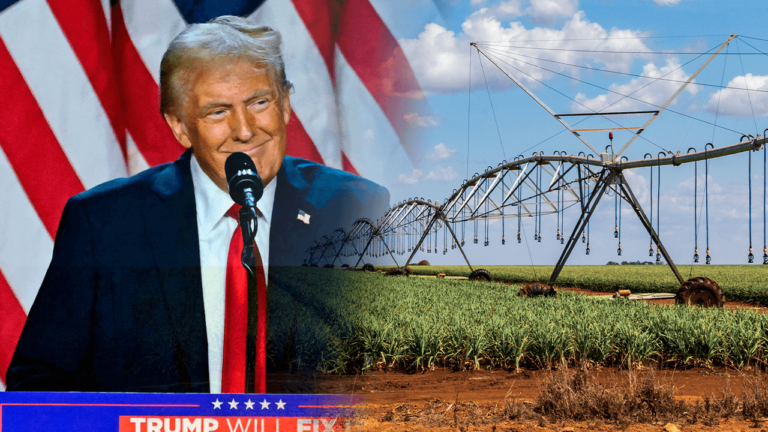The victory of Donald Trump in the 2024 U.S. presidential election carries significant implications for global and Brazilian agribusiness. With a protectionist stance and promises to expand tariffs, Trump reinforces his commitment to an “America First” policy. The Republican proposes tariffs of up to 10% on imports and 60% specifically for Chinese products, aiming to favor domestic production in the U.S. (FoodNavigator USA) (Morningstar).
Impact on Global Trade and Outlook for Brazilian Soybeans
Trump’s tariff policies have already demonstrated their ability to redistribute trade flows during his first term, and Brazilian experts foresee a mix of benefits and risks for Brazil. According to Felipe Jordy from the consultancy Biond Agro, a renewed trade war between the U.S. and China could boost premiums for Brazilian soybeans, though less intensely than in 2018. “Today, Brazil is already the main soybean supplier to China, so the impact on export premiums tends to be more subdued,” notes Jordy. (Canal Rural).
However, the record harvest expected for 2024/25—potentially reaching 164.8 million tons of soybeans—poses challenges. With over 60% of production destined for export, Brazil depends heavily on Chinese consumption to maintain producer liquidity. If China negotiates lower premiums, farmers’ profitability could be affected. “An abundant supply combined with China’s bargaining power creates a challenging scenario for Brazilian premiums,” explains Jordy. (Money Times) (Band News).
Geopolitics and Competitive Advantages for Brazil
Christopher Garman of Eurasia Group highlights Brazil’s strategic position in agricultural geopolitics due to China’s interest in reducing its reliance on the U.S. “Brazil already holds a larger market share in Chinese soybean imports compared to the start of Trump’s first term, which mitigates the effects of a new trade conflict on demand redirection,” says Garman. (Notícias Agrícolas).
Nevertheless, heavy reliance on the Chinese market demands caution. João Rebequi, an expert at Ag4UP, warns that despite Brazil’s potential advantages, the concentration of exports to China makes the sector vulnerable to fluctuations in negotiations and global prices. “The lesson from previous trade disputes is clear: agribusiness geopolitics brings both opportunities and significant challenges,” concludes Rebequi. (CompreRural).
Reflections for the Future
Trump’s victory could benefit Brazilian agribusiness by creating opportunities for increased exports to China. However, heavy reliance on premiums, along with logistical and storage issues, remain critical factors in ensuring the sector’s profitability and resilience. This moment calls for Brazil to balance its export strategy with regional partnerships and market diversification, reducing exposure to another round of global uncertainties.







